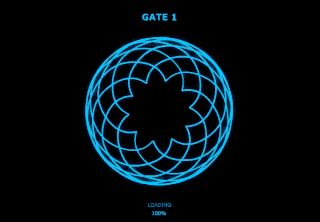this is an area of interest to me and scholarship exists but is thin, because pan-indigenous studies is… not a thing? I am a reader and not a watcher, so I haven’t watched the video and a earlier comment gives the impression that this is addressed: indigenous peoples are not a monolith. I think being in a settler culture confuses this simple statement, because the settler culture lacks cultural memory of place and traditional ecological knowledge so we see commonalities or patterns among indigenous peoples in their land use ethics that we lack… probably by virtue of the fact that we’re all dislocated bozos who just showed up and don’t know what the fuck happened here 500+ years ago.
maybe in a thousand years we will have traditions of “don’t dig there” or “don’t fuck with those mountains” or “these forests should be burned seasonally” or “don’t live year round in that valley” too.
anyway, a cool book that tries to be comprehensive in its gaze into pre-columbian exchange land management and use of the Americas is 1491. it’s dated now, but it was really impressive for its time. it very much contradicts the notion of a “pristine nature” inhabited by indigenous, rather one they managed intensely and to such a profound degree, European explorers and other first contact descriptions could not conceive it. another environmental history book that isn’t so much focused on the indigenous is “Where The Sky Began” about the tall grass prairie. I think 1491 opened my mind up to notions of humans as a keystone species acting deliberately, and that now colors descriptions of places and land use patterns where people lived prior to their “settling” by whites.
Can someone spoonfeed me a summary? I’m intrigued but extremely tired from bus driving I don’t have the capacity or patience to watch all two hours.
Not mine. Is from a different thread.
It’s a self-professed VERY generalized look into different Indigenous cultures and their relationship with nature. Noting that different civilization’s relationship with nature is different due to geography, culture, history, and currently, time period(note is made about how whaling has changed between then and now, as well as two neighboring tribes having different relationships with whales).
There are interviews with Native American cultural ambassadors, professors, historians, and Environmental Scientists. For example, a tribe who is nomadic will very much have beliefs and practices about keeping an area full of resources such as a lake having viable fishing for next season over the practice of maximum resource extraction for a centralized community to keep said community thriving.
It is noted that cultures change with the times, due to changes in local interactions with other indigenous cultures, or due to the encroaching Colonial population interfering with their habitats and communities.
It is also noted that European colonial views of Native American practices of hunting and gathering were colored by European experiences with such things.
Essentially, people are people, and all of our interactions with nature are due to our needs for survival, whether short term or long term, and things are a LOT more complicated than, “Native Americans are the Na’vi from Avatar and totally in touch with nature, man.”
I found a YouTube link in your post. Here are links to the same video on alternative frontends that protect your privacy:




